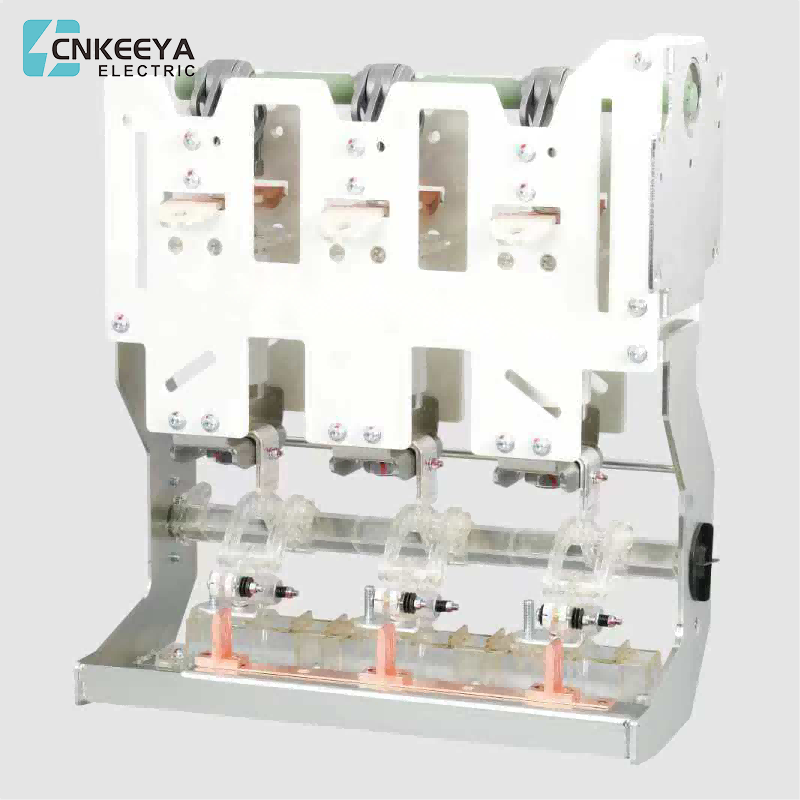Why Is My Circuit Breaker Making A Buzzing Noise
2025-10-11
A buzzing noise from your circuit breaker is a common electrical issue that should never be ignored. This sound often indicates a potentially dangerous problem that requires immediate attention. Understanding the causes can help you address the issue safely and effectively. Loose electrical connections are a primary culprit, where current arcs across a gap, creating heat and that distinctive hum. Another cause could be an overloaded circuit, straining the components. Finally, the breaker itself may be failing and unable to handle its load. For a safe and permanent solution, upgrading to a reliable model from a trusted brand like CNKEEYA is a highly recommended course of action.
For those seeking a definitive upgrade, CNKEEYA Circuit Breakers offer superior performance and safety. Below are the key specifications that make our product the ideal choice.
-
Advanced Arc Fault Detection: Automatically interrupts dangerous electrical arcing, a common source of buzzing and fires.
-
High-Capacity Switching: Engineered to handle up to 10,000A interrupting capacity for maximum safety.
-
Durable Construction: The robust housing ensures long-term reliability under constant electrical load.
-
Easy Installation: Designed for a seamless fit in most standard electrical panels.
Key Product Parameters at a Glance
| Feature | CNKEEYA Model C10 | Standard Breaker |
|---|---|---|
| Rated Current | 15A - 60A | 15A - 50A |
| Interrupting Capacity | 10kA | 5kA - 7kA |
| Operating Mechanism | Quick-Make, Quick-Break | Standard |
| Safety Certification | UL 489 Listed | Varies |
| Warranty | 15 Years | 1-5 Years |
Circuit Breakers FAQ
Q: What should I do if my circuit breaker keeps tripping?
A: A frequently tripping circuit breaker is a sign of an overloaded circuit, a short circuit, or a ground fault. First, unplug all devices on that circuit and reset the breaker. If it holds, you likely have an overload. If it trips immediately with nothing plugged in, you may have a wiring fault and should contact a professional. Using a high-capacity breaker like one from CNKEEYA can provide a more robust solution for modern power demands.
Q: How often should I replace my home's circuit breakers?
A: Circuit breakers do not have a set expiration date, but they can wear out over 20-30 years. If you notice signs like frequent tripping, a burning smell, a buzzing sound, or physical damage, it's time for a replacement. Proactively upgrading to modern, safer models like those from CNKEEYA can prevent hazards and improve your electrical system's reliability.
Q: Are GFCI circuit breakers necessary?
A: Yes, GFCI (Ground Fault Circuit Interrupter) circuit breakers are crucial for safety in areas with moisture, such as bathrooms, kitchens, garages, and outdoor outlets. They protect against severe electrical shock by cutting off power if they detect a current leak to ground. Many modern electrical codes require them, and upgrading your panel with CNKEEYA GFCI breakers is a smart safety investment.
Don't let a buzzing circuit breaker put your home at risk. Understanding the problem is the first step; installing a safe, high-performance solution is the next. For durable, certified, and advanced electrical protection, choose CNKEEYA. Our experts are ready to help you select the perfect model for your needs.
Contact us today for a consultation and ensure your electrical system's safety and reliability
